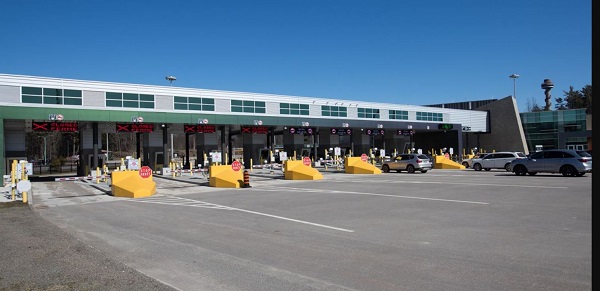On the 20th of August 2019, the Buhari-led administration closed Nigeria’s land borders with neighboring countries, including Benin, Togo, Niger, Cameroon and Chad. The federal government gave the order to stop the smuggling of food commodities like rice, cooking (vegetable) oil, poultry, tomato, flour and pasta into the country.
Barely a month after Nigeria ratified the AfCFTA agreement in November 2020, the federal government ordered the reopening of land borders at Seme in Lagos, Illela in Sokoto, Maigatari in Jigawa and Mfum in Cross River. Other borders were closed due to the coronavirus lockdowns.
President Muhammadu Buhari ordered federal borders to be reopened on December 16, 2020, while they reopened certain state borders on the 27th of April 2022.
By the numbers
Many argue that the directive was not responsible for the spike in inflation rate as months after the federal government gave the directive, the Covid-19 pandemic struck. But according to data by the cable, the consumer price, an index for measuring inflation, rose to 11.61 percent in October 2019. The exact rate of inflation in 2018 when the country was in recession.
- In November and December 2019, the inflation rate hit 11.85 percent and 11.98 percent, respectively. Representing a 19-month high.
- Food inflation rate spiked from 13.2 percent in August 2019 to 13.51 percent in September 2019 and from that to 14.09 percent in October 2019.
- Increases in prices of bread and cereals, meat, Fish, oils and fats, potatoes, yam, and other tubers caused the rise in food prices. Some of which were earlier banned by the federal government.
- In January through November 2020, the inflation rate rose from 12.13 percent at the start of the year to 14.89 percent in November.
The big picture
Since the border closure in 2019 till date, Nigeria’s inflation rate has continued on an upward streak and has accelerated to 20.77 percent. Not that other factors have not influenced Nigeria’s economic crisis, including forex scarcity and insecurity. But the inability of domestic agricultural supply of food to meet the country’s demand, cultural reverence and taste preference, it is inevitable to identify the closure of land borders as a propellant of inflation in Nigeria.

